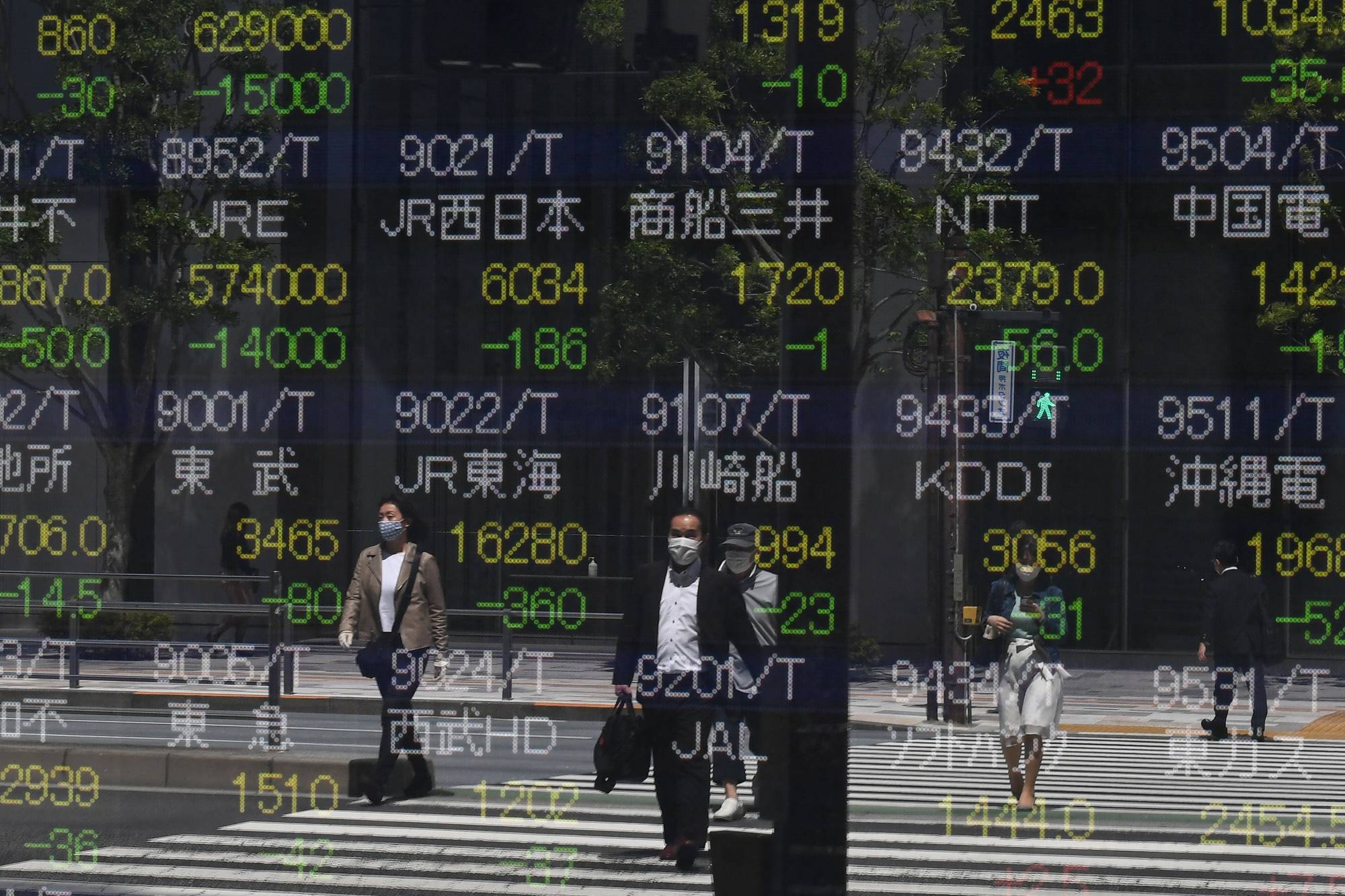Japan is casting an even wider protectionist net to shield its big companies. It has less to do with defending against unsolicited overtures into strategic assets than with squeezing out troublesome foreign investors. The moves will strangle what’s left of the drive to reform corporate governance and undermine long-suffering households as an economic crisis takes hold.
On May 8, Tokyo laid out details of new rules that restrict overseas investment through amendments to its Foreign Exchange and Foreign Trade Act, in a bid to preserve industries in the interest of national security. A so-called core list includes giants like Toyota Motor Corp. and SoftBank Group Corp. that amounts to 40 percent of the Topix index by market capitalization. The government also spelled out much-awaited exemptions that establish whether outside investors are subject to the rules. The effect is to add onerous hurdles to what had been an open market, nearly one-third owned by foreigners who account for most of the daily turnover, according to Goldman Sachs Group Inc.
The changes underscore Japan’s sharp retreat from the encouraging reforms undertaken since 2015. They had been succeeding. Shareholder proposals for auditor or director changes were up, as were returns. Hedge funds such as Dan Loeb’s Third Point LLC and Paul Singer’s Elliott Management Corp. have all had their eyes on the likes of Sony Corp. and SoftBank. On Tuesday, London-based activist Asset Value Investors Ltd. took on elevator- and escalator-maker Fujitec Co. to improve governance and returns. A fairly liquid market had meant foreigners could choose where they put their money without needing to consider the extra layer of regulations for participation and if companies were subject to them. Now, under the new rules taking effect June 7, any overseas investor who wants to build a stake of more than 1 percent needs to notify regulators, a severe tightening from the previous 10 percent. Who wants to seek approval well before investing and be hamstrung on timing?


















With your current subscription plan you can comment on stories. However, before writing your first comment, please create a display name in the Profile section of your subscriber account page.